11 Plastic-Free Food Storage Containers For Low-Impact Leftovers
Saying ‘no’ to food waste is necessary in any zero waste kitchen recipe. And while we’re big advocates of composting and reusingfood scarps, how we store food is our biggest defense against the 40% of food that ends up rotting in the landfill.
But it often comes with its own set of problems. Namely: plastic.
But it doesn’t have to be that way, thanks to plastic-free food storage contains to suit your food-saving needs, from leftovers to lunch.
Everything we recommend to you on Sustainable Jungle is independently researched and we ask all brands to confirm their claims. To avoid waste, we test products on an as needed basis. This post contains affiliate links. If you buy something through our links, we may earn a small commission. Learn more about why we do this here.
The best non-plastic food storage Solutions Keeping Your Pantry Plastic-Free
Start by replacing hard-to-recycle ziplock bags with Stasher’s reusable silicone bags that are safe for the freezer, oven, dishwasher, microwave, and sous vide machine.
Caraway offers premium ceramic-coated glass food containers free of harmful chemicals and safe for the dishwasher, microwave, and oven.
For something shiny (and completely plastic free), Package Free Shop’s airtight stainless steel zero waste food containers are durable and can be recycled at the end of their shelf life.
Now before you get to the rest of our favorite eco-friendly, reusable containers for food, watch our video below where we break down the pros and cons of each material.
The Best Eco-Friendly Food Storage Containers
Plastic-Free Glass Food Storage Containers
Stainless Steel Containers For Food
Sustainable Food Storage Wraps & Bags
1. Water Or No Storage Whatsoever
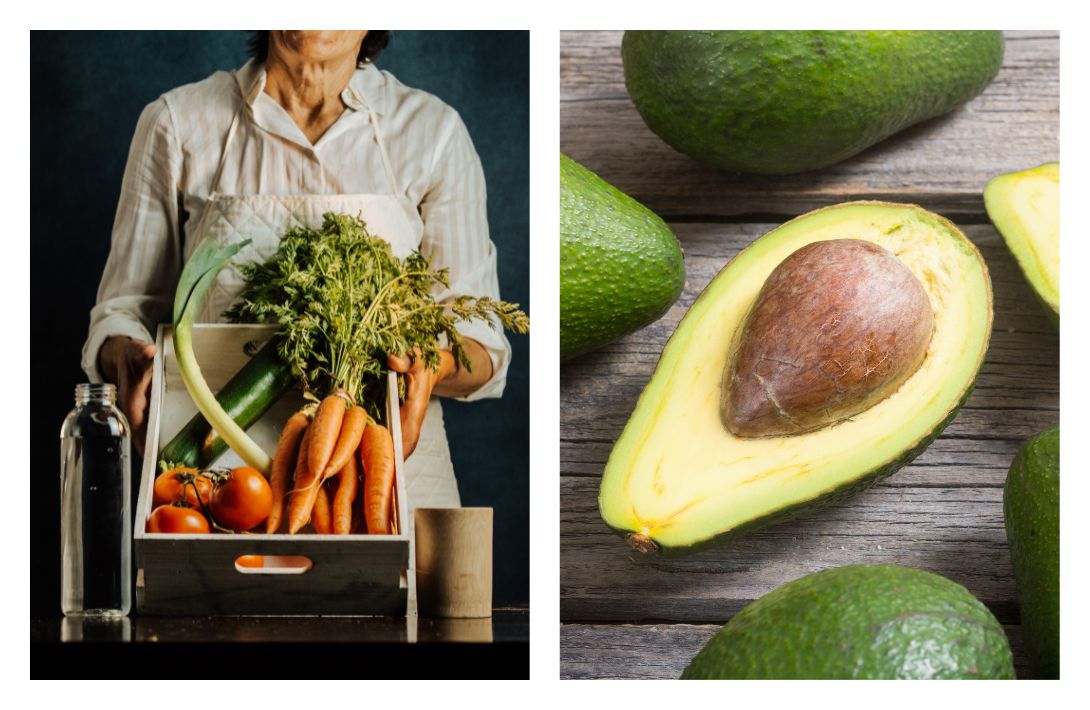
Think you need to buy something new to store food sustainably?
Think again. You might be able to use what you have arleady have. Or in some cases, what the food itself already has. Natural protective skin and rinds—a la stone fruits, avocados, tomatoes, apples, melons, squash, onions, and potatoes— is the ultimate zero waste food storage as long as its stored properly.
While some types of produce don’t need special containers, others do better with a little bath. Hardy vegetables like celery, cut apples, halves avocados, and carrots last significantly longer after being cut if stored in fresh cool water or wrapped in a damp cloth. You can also fill a glass jar an inch or two to submerge the trimmed root end of fresh herbs and long-stemmed greens—like flowers in a vase.
2. Old Glass Jars

Speaking of using what you already own…
The best non-plastic food storage container is something you probably already have in your kitchen: the humble glass jar. Pasta sauce, nut butter, pickles, and many other types of food often come in glass containers that serve as an excellent (and cheap) non-plastic tupperware solution once santizied with hot water and zero waste dish soap.
When comparing glass vs plastic for food storage, glass is a clear winner. Aside from being fully recyclable and abundantly available, you don’t have to worry about staining, lingering smell and tastes, or common contaminants such as BPA, BPS, and phthalates.
You can also reheat glass over and over without worrying about chemical leaching, and being dishwasher safe smakes cleaning a breeze—especially when leftovers get forgotten in the back of the fridge for weeks. You can even freeze things in them provided you leave enough room for liquid expansion.
When you store food in high-quality glass—like tempered glass or borosilicate glass (AKA Pyrex)—you have a storage option that should last a lifetime.
Plus, for every six tons of reused glass containers, carbon dioxide emissions are reduced by one ton!
3. Caraway
Caraway’s non-plastic containers include non-toxic ceramic-coated glass cubes with Air Release Technology to keep your food fresh and odor free.
These have been our primary food storage tools for the last two years and it’s safe to say we’re in leftover love. The non-toxic non-stick ceramic coating is still in perfect shape, though, just as you should do with any of their non-toxic cookware, that longevity largely depends on you not using any metal utensils that may scratch it.
Available individuall or in sets, there are three main sizes, along with additional Dot and Dash mini containers ideal for sauces and snacks.
While we mostly use them at home for leftovers and meal prep because of their sturdy stacking design that saves precious fridge space, we do appreciate the includion of silicone straps that give us spill-proof peace of mind when toting them to and from places.
The refrigerator, freezer-safe, and dishwasher-safe plastic-free glass tupperware is free of BPA, BPS, PFOA, PTFE, and heavy metals. While these are generally oven, freezer, and microwave safe non-plastic food storage containers, the lids and Dot and Dash pieces should not be microwaved.
4. Glasslock
Glasslock uses tempered glass that is five times stronger than ordinary glass. It’s BPA-free, oven-safe (except for very high heat), non-toxic, refrigerator/freezer safe, microwave-safe, and dishwasher safe.
The lids have an integrated water and airtight silicone seal, and if one mysteriously vanishes you can get free replacements on their website.
These glass containers come in several sizes and shapes (circular and rectangular).
5. ECOlunchbox
ECOlunchbox may offer various sizes, shapes, and configurations they use only one material: food-grade stainless steel. Like glass, stainless steel is non-porous and doesn’t absorb bacteria or leach toxic chemicals like BPA, BPS, and phthalates—making it one of the safest food storage containers.
While infinitely recyclable itself, stainless steel is often mixed with materials that are NOT recyclable, like paints and resin linings. Fortunately, ECOlunchbox doesn’t mix materials. In fact, the only other material in use is food grade silicone in lids of some models, like the Seal Cup Trio, which we also own.
These are our go-to on-the-go containers because they’re super lightweight, easy to clean, and won’t break if they get tossed around in a bag or dropped.
This Certified B Corp has even gone the extra mile and included the tare weight etched on the bottom, making purchasing bulk foods hassle-free.
6. Package Free Shop
Package Free Shop offers two kinds of plastic-free tupperware. One feaures an FDA Standard high borosilicate heat resistant glass body, paired with a bamboo lid and a silicone airtight seal.
They other is made from ultra-durable 18-10 food grade 316 stainless steel that dishwasher, oven, and fire safe, but not microwave safe. The airtight lids feature a non-removable silicone seal that has been factory-installed without adhesive. At the end of the container’s lifespan, the base and silicone seal can be recycled wherever metal and silicone are accepted.
Orders are shipped in a 100% plastic-free post-consumer cardboard box with paper wrapping, labels, and tape—all recyclable and compostable.
7. U Konserve
1% For the Planet member U Konserve has a range of environmentally friendly tupperware options, including circular and rectangular nesting storage and to-go containers made with non-toxic stainless steel that is free of BPA, lead, and phthalates.
In an effort to transition away from the formerly #4 plastic lids, they now offer food grade silicone lids for all containers.
8. Bee’s Wrap
Beeswax wraps were one of the first solutions to swapping out our reliance on plastic wrap—long before it even existed! Cloth soaked in beeswax dates back to ancient Egypt. Now, these sustainable food storage cloths have exploded as a replacement for plastic wrap and sandwich bags. Once you learn how to use beeswax wraps, you’ll agree there’s no going back.
Bee’s Wrap is a Vermont-based Certified B Corp and Green America Certified Company making GOTS-certified organic cotton cloths coated with sustainably harvested beeswax, organic jojoba oil, and tree resin.
You can use them to wrap fresh veggies, cheese, and sandwiches, bag up snacks, and cover plates and bowls. If cared for properly, they can be used over and over again and if they finally wear out, you can either recoat them with beeswax or compost them.
9. SuperBee
SuperBee makes reusable beeswax wraps and beeswax food storage bags from 100% GOTS-certified organic cotton and a proprietary blend of sustainably harvested, pesticide-free beeswax, organic coconut oil, and tree resin.
We’ve personally been using ours from this brand for about a year now and they’re still performing super well without the coating wearing noticably thin anywere. Since they’re designed to last about two years (depending on use and care) we expect to get at least another year from them.
The Certified B Corp is a woman-owned company that empowers women in Thailand, paying 20% more than the living wage suggested by the Fair Trade Association and giving back to the local community.
10. Stasher
If you’re looking for non-plastic freezer containers, say hello to silicone bags from Stasher.
Wait, is silicone eco-friendly?
Well, it’s not quite that straight forward, but in summary, silicone is (almost) always a much better alternative to Ziploc bags since it’s totally non-toxic—being free of BPS, BPA, lead, phthalates, and latex—and pretty much infinitely reusable.
Stasher’s “self-sealing” are made of 100% pure platinum-grade silicone (better than food grade) and are safe to use in the freezer, oven, dishwasher, microwave, and sous vide machine. They also come in a plethora of sizes for all your food stroage needs.
Stasher uses an SA8000-certified manufacturing facility and partners with TerraCycle to provide you with a means to responsibly recycle unwanted or damaged bags.
11. Vejibag
For something so simple, the cloth Vejibag is revolutionary. It’s designed to keep fruit and veggies fresh, crisp, and nutrient-rich for two weeks or more using a simple food philosophy: that veggies keep best in cool, damp environments.
Available in standard and large sizes, Vejibags are made of undyed 100% French terry organic cotton that’s grown, milled, and produced in the USA. Once dampened, they provide a humid, breathable environment to maintain the freshness and crispness of produce longer than plastic bags.
If storing for more than a few days, be sure to re-wet the bag.
Did you know we Have a Newsletter?
We cover the latest in sustainable living, fashion, zero waste, beauty, travel, finance and more…
Why Choose Sustainable Food Storage?
Food waste is a significant problem, contributing to ~7% of total anthropogenic GHG emissions. Many of us have kitchens filled to the brim with plastic food waste solutions—leading to another insidious type of waste.
Plastic is lightweight and generally more affordable than eco-friendly food storage containers, but it raises a hefty bill for our planet and health. Many are either impossible to recycle or simply aren’t. For example, Ziploc bags have a laughably low recycling rate of 0.2%. Only our planet doesn’t find this funny…
When these plastics enter landfills, they release chemicals like dioxins. If they float into waterways instead, they become a trap for heavy metals and bacteria. Plastic can also appear like a tasty treat to marine life, suffocating or exposing them to dangerous contaminants.
Don’t forget, a plastic container is dangerous for humans, too.
Phthalates, which improve the durability of plastic, have also been associated with health complications like reproductive issues, developmental problems, endocrine disruption, increased levels of oxidative stress, disrupted hormone levels, cancer, and more.
Many plastics also contain bisphenol A (BPA), a chemical used to produce certain types of plastic, including polycarbonate plastic used in tupperware. BPA has been associated with adverse health effects, including increased blood pressure, type 2 diabetes, cardiovascular disease, hormonal imbalance, reproductive issues, increased risk of certain cancers, and behavior problems or brain development concerns in children.
Although some plastic options (including name brand Tupperware) now make BPA-free food storage containers, it’s important to note that some BPA-free plastics may still contain other chemicals that have not been thoroughly tested for safety. Some studies have suggested that these alternative chemicals may also have health risks.
Pin these:
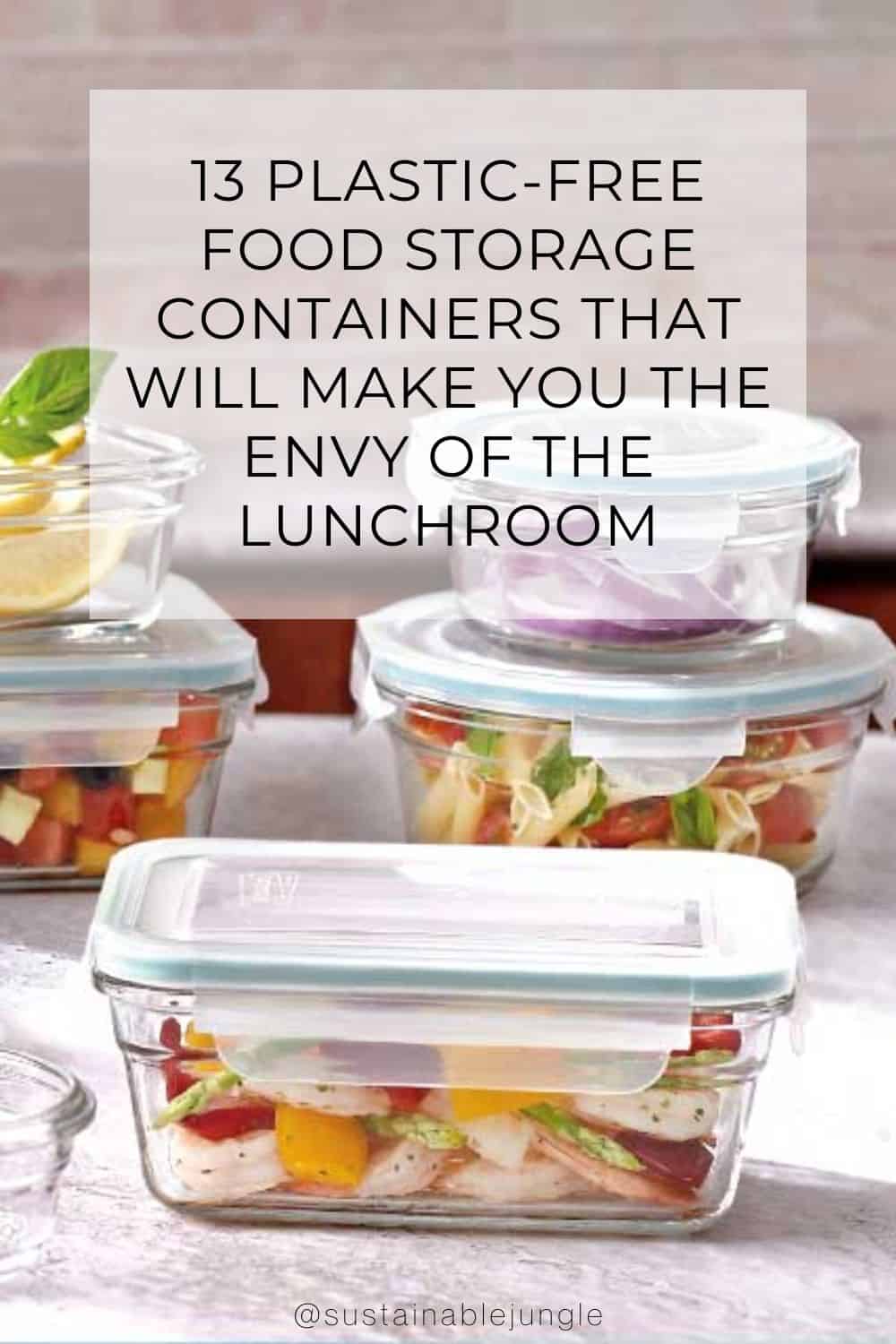
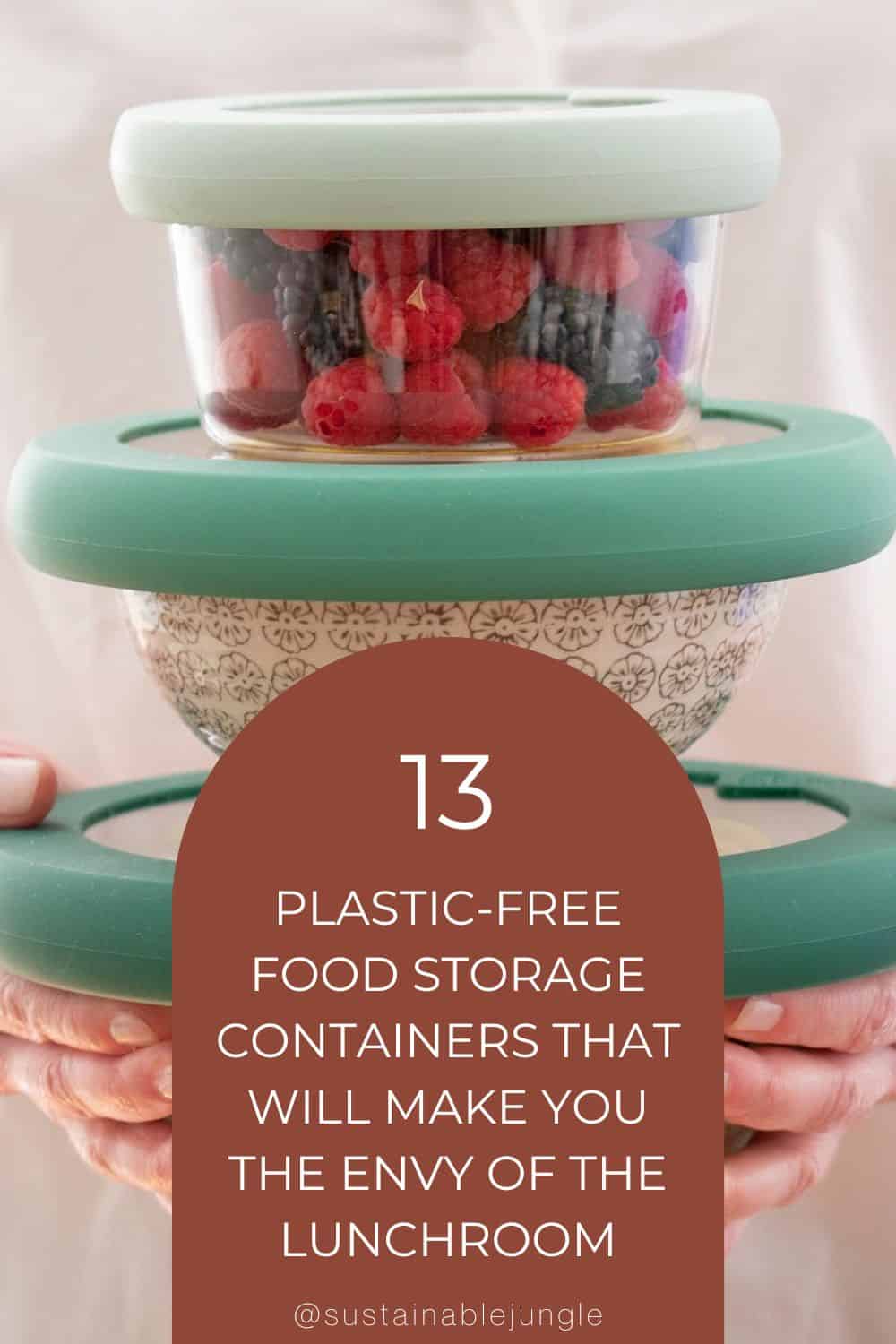



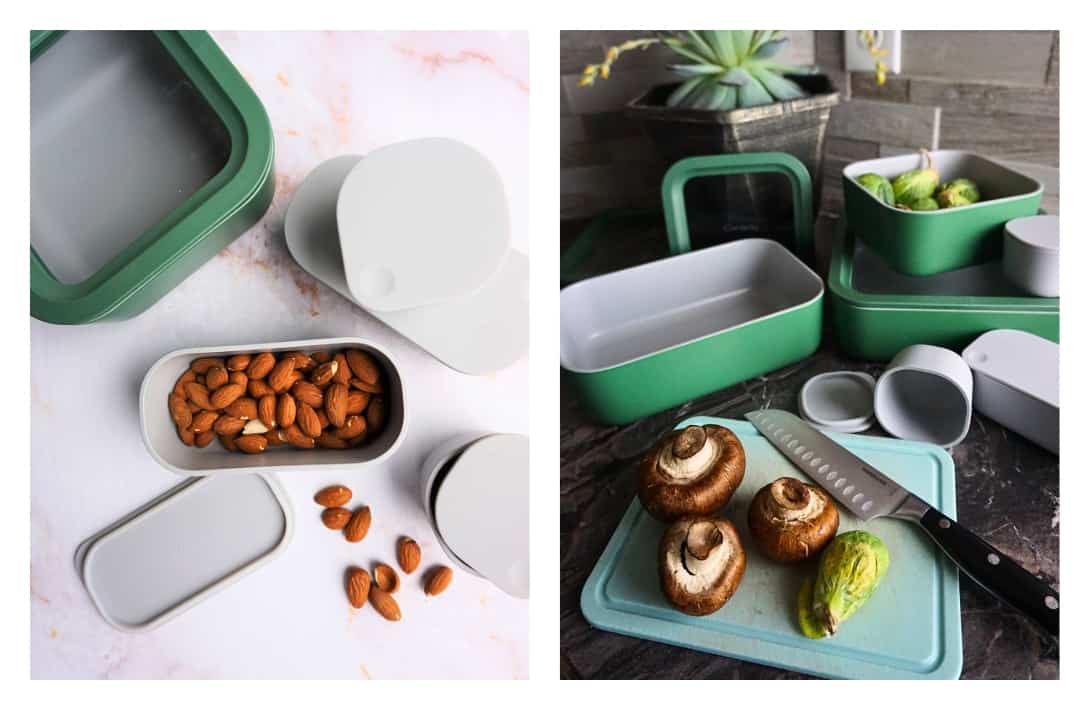
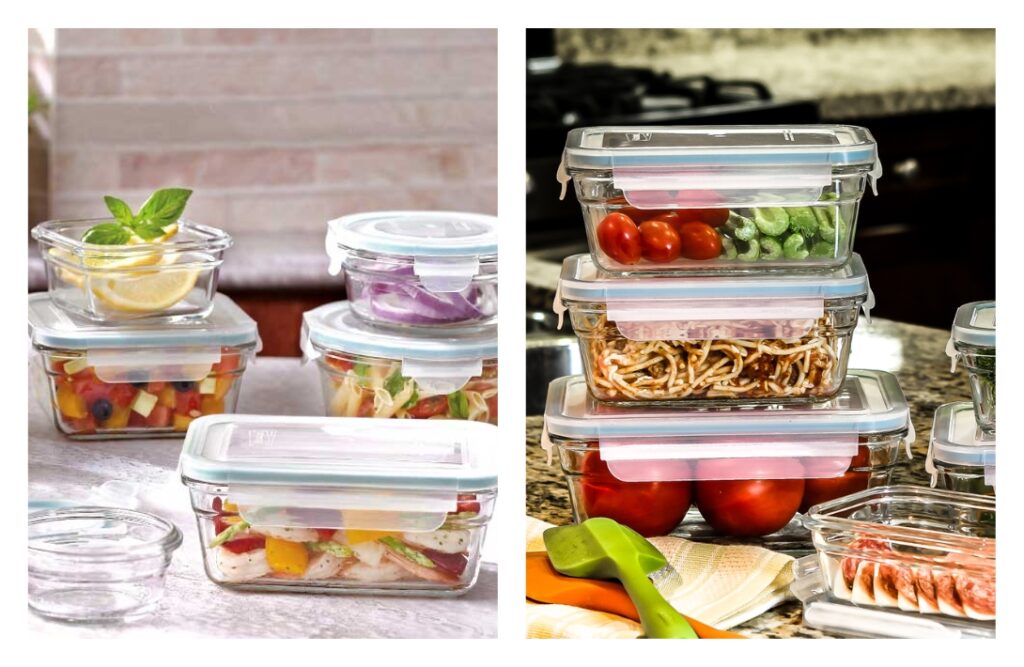
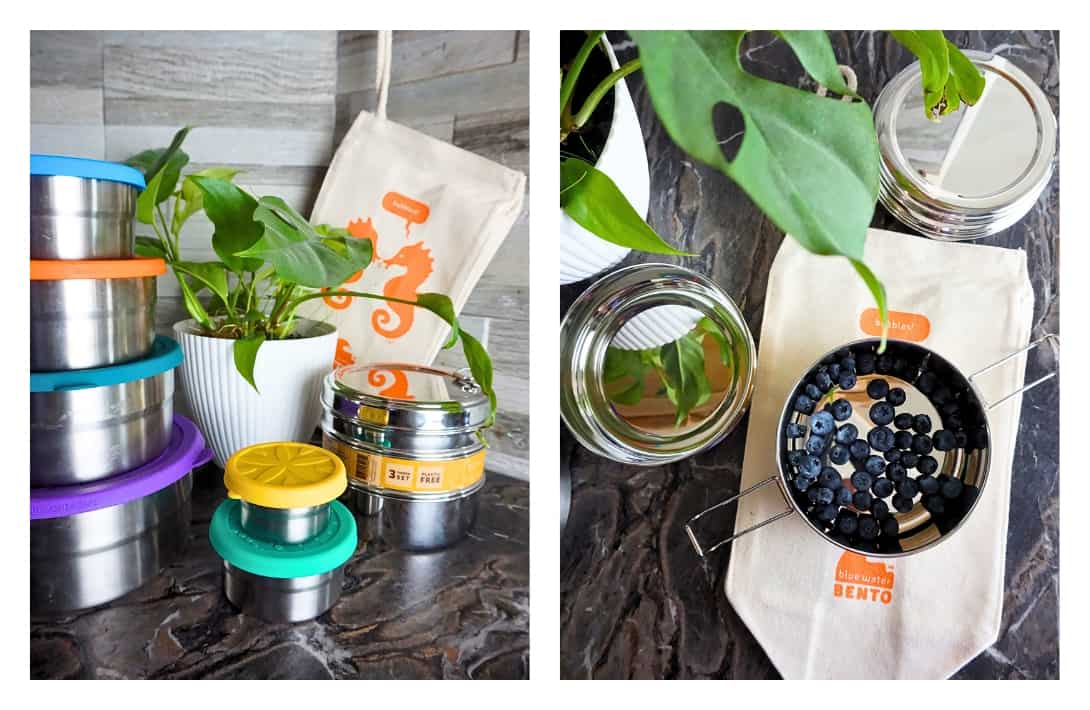

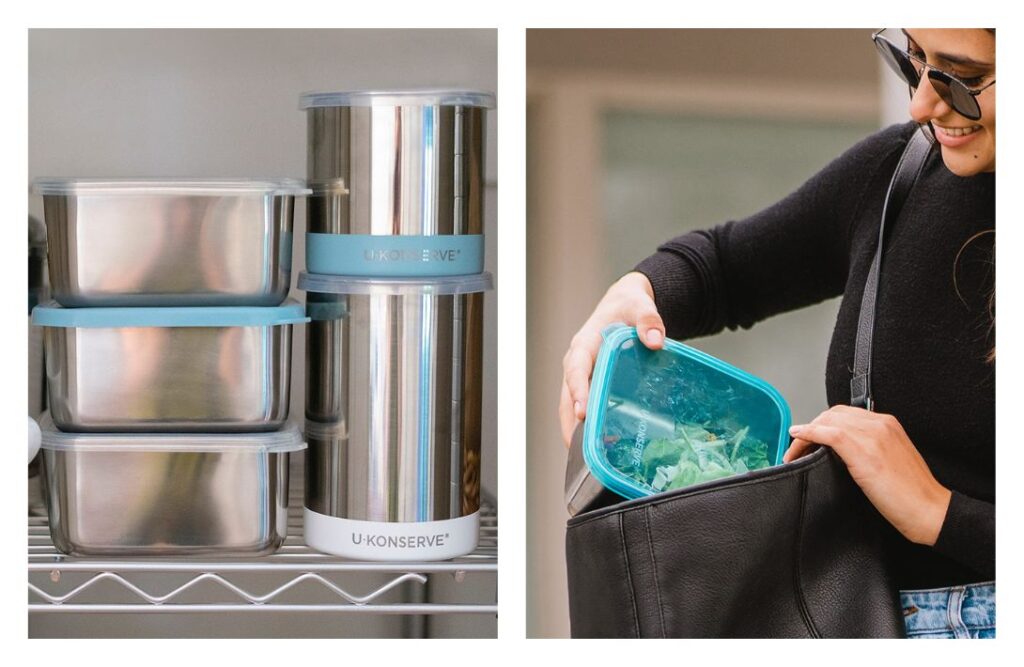
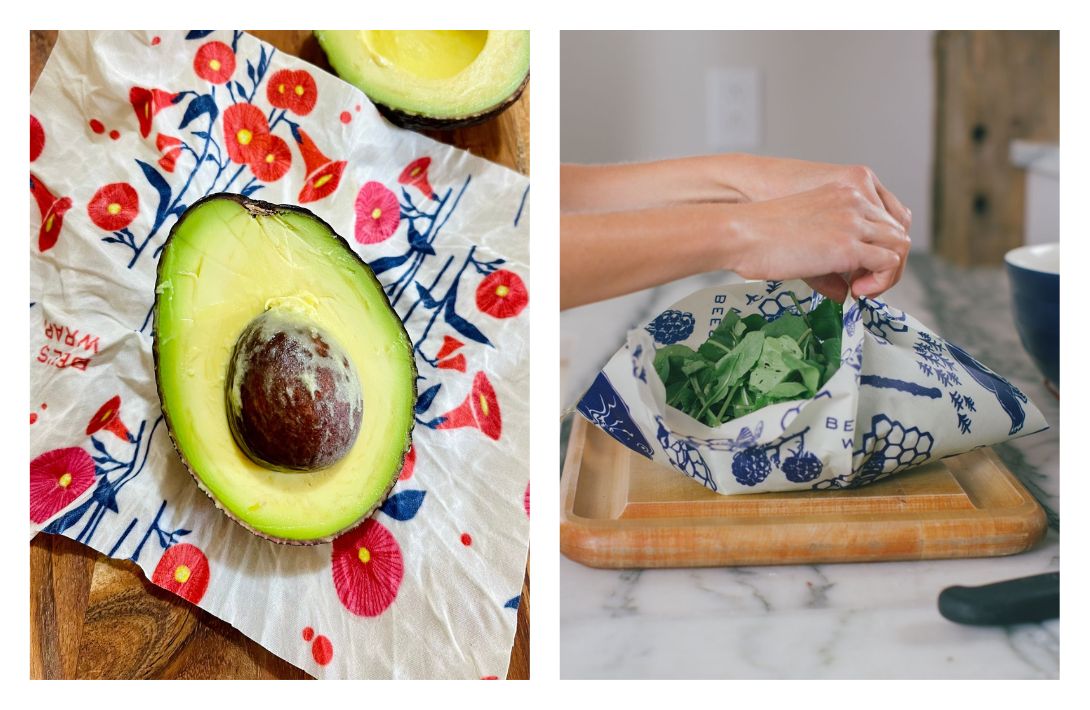


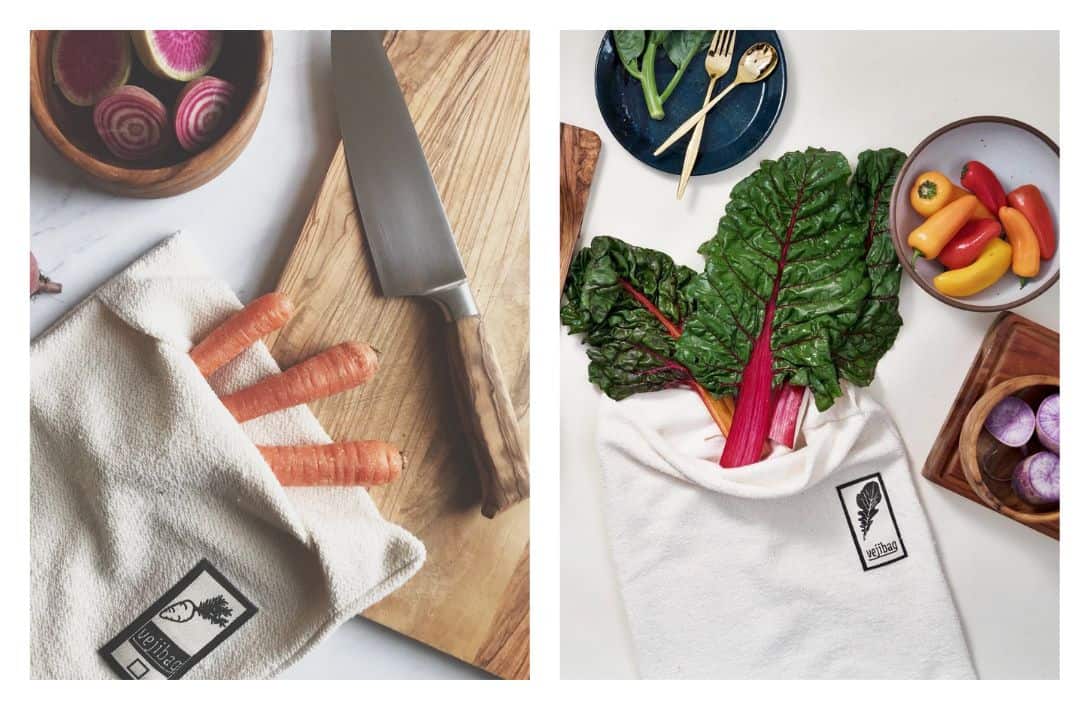
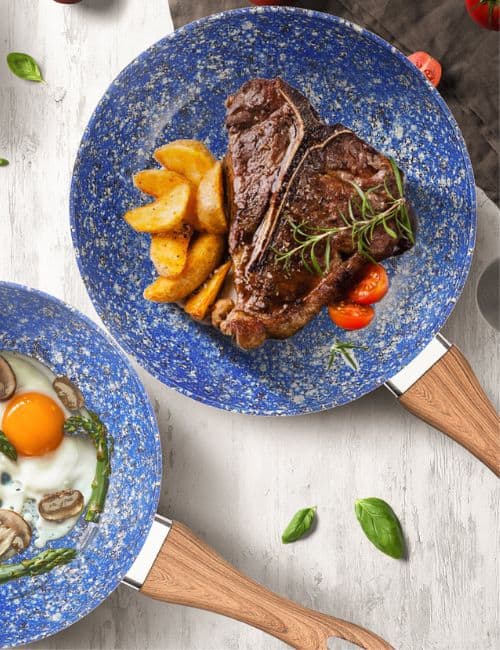
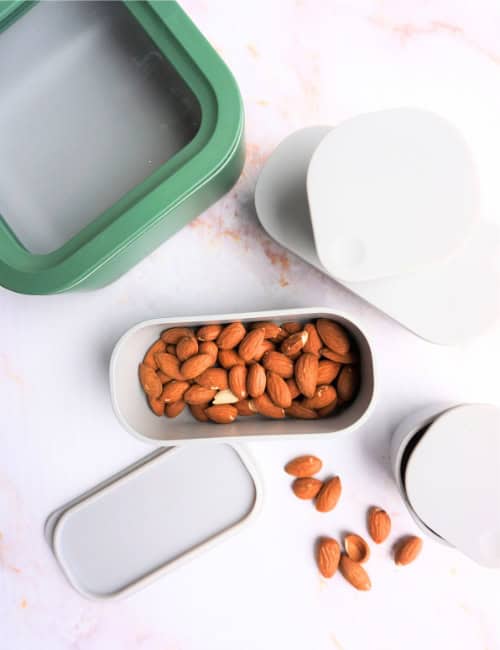
Glasslock uses plastic for its lids! Polypropylene is plastic.
Thank you for your post. Most of the ideas were helpful, but as people are moving away from plastic and trying to find a “healthier” option, why then would you offer metal as an alternative? Food grade metal is made of stainless steel, which is made with nickel, unless specifically noted. Nickel is quite harmful to humans and not a good “healthy” option. It should be avoided for food storage, cooking, or drinking containers. Just because a product comes from a health food store, doesn’t mean it’s beneficial. It might be a modern trend, that has not health value to it. Metal is good for making vehicles strong and such, but keep it away from your food. Wood, glass, and wax make good options.
At the same time, we will not live forever. I am careful with my food choices and such, to possibly prevent years of disease at the end of my life, but I have to trust God with that in the end. We need to worship the One-True God of the Bible and not get confused and worship creation. This would fix the problems we have in our world. God made the world and everything in it. The world was merely made by our Creator. Isn’t it more valuable to worship the Creator than the created!
Thanks for the input Rhonda, we’ll take another look on the next update.